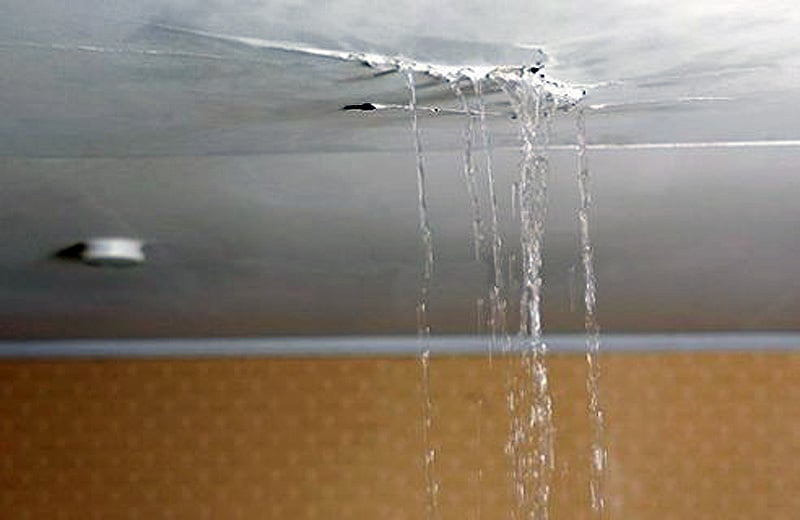Exposing the Key Causes of Leakage Within Your House
Exposing the Key Causes of Leakage Within Your House
Blog Article
We have discovered the article on How to Find Water Leaks directly below on the internet and concluded it made good sense to share it with you on this site.

Leakages not just cause waste of water yet can additionally trigger unnecessary damage to your residence and also promote unwanted natural growth. Sadly, water leakages may go unnoticed given that the majority of the pipework in our home is concealed. By understanding as well as looking for day-to-day situations that trigger leakages, you can safeguard your residence from future leaks as well as unneeded damage. Today, we will certainly take a look at 6 leak creates that may be creating your pipes to leak.
Elbowing in origins
The majority of water leaks begin outside your home rather than inside it. If you observe a sudden decline in water pressure, state in your faucet, take some time to head out and analyze your backyard. You may see wet patches or sinkholes in your backyard, which might indicate that tree origins are invading water lines triggering water to permeate out. You can have your plumber look for intrusion, particularly if you have trees or bushes near your residential property.
Corroded water supply
As time passes by, your plumbing system ages and also rust such as corrosion may start gnawing the pipes. This might be the reason for discoloration or warping on your pipes. This requires an inspection with your plumber immediately. If our plumbing system is old, take into consideration replacing the pipes because they go to a higher risk of corrosion than the more recent models.
Defective Pipe Joints
Pipeline joints can wear away over time, resulting in water leakages. If you have loud pipelines that make ticking or banging sounds, especially when the hot water is turned on, your pipeline joints are possibly under a lot of stress.
Instantaneous temperature level modifications.
Extreme temperature modifications in our pipelines can trigger them to broaden and contract unexpectedly. This development as well as contraction might cause splits in the pipes, especially if the temperature level are below freezing. If you maintained an eye on how your plumbing functions, it would be best. The visibility of the previously mentioned scenarios regularly shows a high threat.
Poor Water Connectors
At times, a leakage can be caused by loosened hoses and also pipes that provide your appliances. In instance of a water connections leakage, you might discover water running straight from the supply line or pools around your home appliances.
Obstructed Drains
Clogged drains could be frustrating and also inconveniencing, but they can often wind up creating an overflow resulting in rupture pipelines. Maintain getting rid of any materials that might drop your drains pipes that can block them to prevent such troubles.
All the above are sources of leaks however not all water leaks result from plumbing leakages; some leakages may come from roof leakages. All leakages must be repaired immediately to stay clear of water damage.
Leakages not just trigger waste of water however can also create unneeded damages to your residence as well as promote unwanted organic growth. By understanding and also looking for day-to-day circumstances that cause leakages, you can safeguard your residence from future leaks and also unnecessary damages. Today, we will certainly look at six leakage causes that might be causing your pipes to trickle.
At times, a leak can be triggered by loosened hose pipes as well as pipelines that supply your home appliances. In instance of a water links leak, you may observe water running straight from the supply line or pools around your appliances.
How To Check For Water Leak In Your Home
How To Check for Leaks
The average household's leaks can account for nearly 10,000 gallons of water wasted every year and ten percent of homes have leaks that waste 90 gallons or more per day. Common types of leaks found in the home are worn toilet flappers, dripping faucets, and other leaking valves. These types of leaks are often easy to fix, requiring only a few tools and hardware that can pay for themselves in water savings. Fixing easily corrected household water leaks can save homeowners about 10 percent on their water bills.
To check for leaks in your home, you first need to determine whether you're wasting water and then identify the source of the leak. Here are some tips for finding leaks:
Take a look at your water usage during a colder month, such as January or February. If a family of four exceeds 12,000 gallons per month, there are serious leaks.
Check your water meter before and after a two-hour period when no water is being used. If the meter changes at all, you probably have a leak.
Identify toilet leaks by placing a drop of food coloring in the toilet tank. If any color shows up in the bowl after 10 minutes, you have a leak. (Be sure to flush immediately after the experiment to avoid staining the tank.)
Examine faucet gaskets and pipe fittings for any water on the outside of the pipe to check for surface leaks.
Undetected water leaks can happen without the home or business owner even realizing. If you suspect a water leak, but not able to find the source. It is time to contact a professional water leak detection service, The Leak Doctor.
How To Find a Water Leak In Your Home
https://www.leakdoctor.com/blog/How-To-Check-For-Water-Leak-In-Your-Home_AE197.html
Do you really like reading up on How Fast Water Damage Can Ruin Your Home? Give feedback below. We'd be glad to listen to your feelings about this blog post. We are looking forward that you come back again later on. Liked our write-up? Please share it. Help other people locate it. Many thanks for your time. Come back soon.
Peace of mind? Dial! Report this page